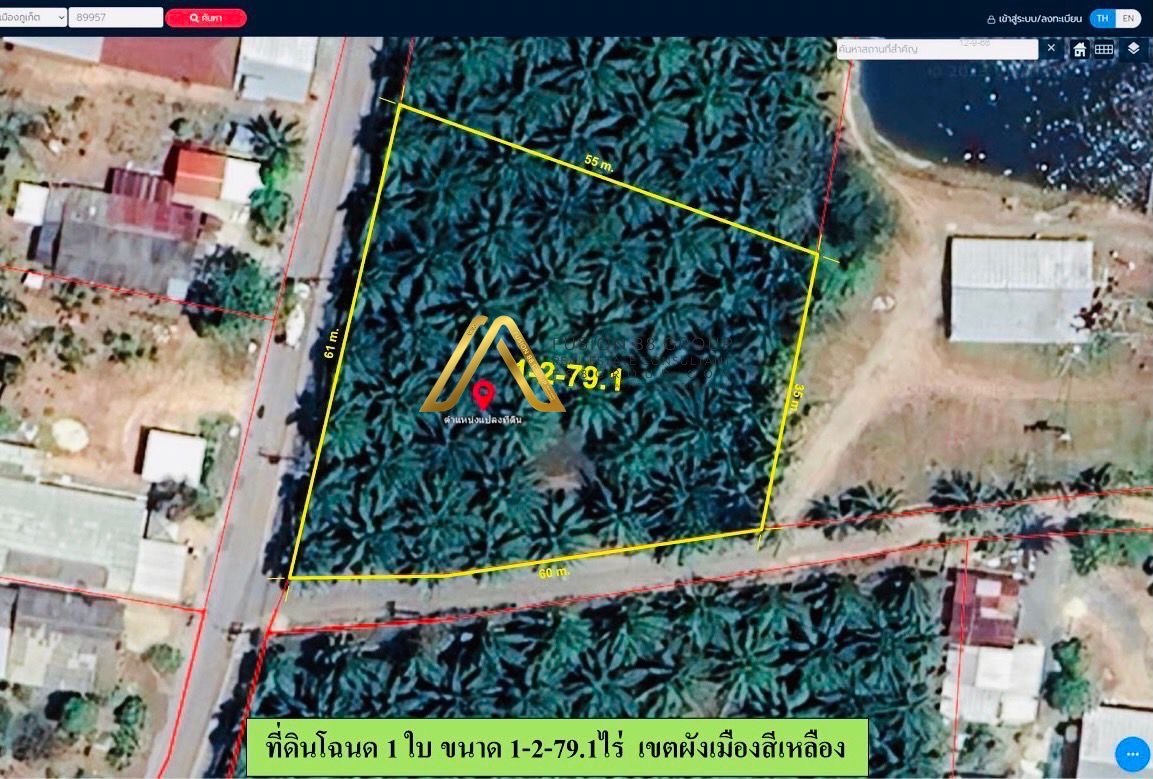Mastering Real Estate in Phuket, Thailand: Strategies and Insights for Success
Table of Contents
- Introduction
- Overview of Phuket
- Why Invest in Phuket Real Estate?
- Understanding the Market
- Market Overview
- Historical Trends
- Current Market Conditions
- Future Projections
- Legal Framework
- Property Ownership Laws for Foreigners
- Types of Property Ownership
- Legal Due Diligence
- Working with Legal Professionals
- Types of Properties
- Residential Properties
- Condominiums
- Villas
- Townhouses
- Commercial Properties
- Hotels and Resorts
- Retail Spaces
- Office Buildings
- Land Investments
- Residential Properties
- Key Locations in Phuket
- Patong Beach
- Kata and Karon Beaches
- Rawai and Nai Harn
- Kamala Beach
- Bang Tao Beach
- Phuket Town
- Investment Strategies
- Buy-to-Rent
- Buy-to-Sell
- Long-term Investment
- Short-term Flipping
- Vacation Rentals
- Joint Ventures
- Financing Your Investment
- Financing Options for Foreigners
- Working with Banks and Financial Institutions
- Mortgage Process
- Alternative Financing Methods
- Buying Process
- Finding a Property
- Negotiating the Deal
- Making an Offer
- Due Diligence Checklist
- Closing the Deal
- Working with Professionals
- Real Estate Agents
- Lawyers
- Property Managers
- Financial Advisors
- Property Management
- Managing Your Property
- Hiring a Property Manager
- Maintenance and Repairs
- Marketing Your Rental Property
- Taxation and Financial Considerations
- Property Taxes
- Income Taxes
- Capital Gains Taxes
- Tax Planning Strategies
- Market Trends and Insights
- Tourism Impact on Real Estate
- Infrastructure Developments
- Economic Factors
- Environmental Considerations
- Case Studies
- Successful Investments
- Lessons Learned from Failed Investments
- Market Adaptation Strategies
- Future Outlook
- Upcoming Developments
- Market Predictions
- Strategic Recommendations
- Conclusion
- Summarizing Key Points
- Final Thoughts and Advice
Chapter 1: Introduction
Overview of Phuket
Phuket, Thailand’s largest island, is a tropical paradise renowned for its stunning beaches, vibrant nightlife, and rich cultural heritage. As a popular tourist destination, it attracts millions of visitors annually, creating a dynamic real estate market driven by both international and domestic demand. The island’s strategic location, excellent infrastructure, and quality of life make it an attractive spot for real estate investment.
Why Invest in Phuket Real Estate?
Investing in Phuket real estate offers numerous benefits. The island’s tourism industry ensures a steady demand for rental properties, providing attractive rental yields. Additionally, Phuket’s real estate market has shown resilience and growth over the years, making it a promising long-term investment. The favorable legal framework for foreigners, coupled with a variety of property types and price ranges, further enhances its appeal.
Chapter 2: Understanding the Market
Market Overview
Phuket’s real estate market is diverse, with a mix of high-end luxury properties, affordable housing, and commercial real estate. The market is segmented into different regions, each with its unique characteristics and demand drivers. Understanding these segments is crucial for making informed investment decisions.
Historical Trends
Analyzing historical trends helps investors understand the market’s performance over time. Phuket’s real estate market has experienced steady growth, driven by tourism, infrastructure development, and increasing foreign investment. Key trends include rising property values, increased demand for rental properties, and a growing interest in luxury real estate.
Current Market Conditions
The current market conditions in Phuket reflect a robust demand for both residential and commercial properties. The COVID-19 pandemic had a temporary impact, but the market has rebounded strongly with the return of tourism. Factors such as government incentives, infrastructure projects, and a stable economy contribute to the positive outlook.
Future Projections
Future projections for Phuket’s real estate market are optimistic, with continued growth expected. Upcoming infrastructure projects, such as airport expansions and new highways, will enhance connectivity and accessibility, further boosting property demand. Additionally, the rise of remote work and digital nomadism is expected to increase interest in long-term rentals and relocations to Phuket.
Chapter 3: Legal Framework
Property Ownership Laws for Foreigners
Thailand has specific laws governing property ownership for foreigners. While foreigners cannot own land outright, they can own buildings and condominiums. Understanding these laws is essential for ensuring compliance and protecting your investment.
Types of Property Ownership
Foreign investors have several options for property ownership, including leasehold agreements, condominium ownership, and setting up a Thai company to hold land. Each option has its advantages and legal implications, which should be carefully considered.
Legal Due Diligence
Conducting thorough legal due diligence is crucial to avoid potential pitfalls. This involves verifying property titles, checking for encumbrances, and ensuring compliance with zoning regulations. Engaging a reputable lawyer specializing in Thai real estate law is highly recommended.
Working with Legal Professionals
Collaborating with experienced legal professionals can simplify the investment process and provide peace of mind. Lawyers can assist with contract drafting, title searches, and navigating the complex legal landscape, ensuring a smooth and secure transaction.
Chapter 4: Types of Properties
Residential Properties
Condominiums
Condominiums are a popular choice among foreign investors due to their affordability and legal ease of ownership. They offer a range of options, from budget-friendly units to luxurious penthouses, catering to various investment goals.
Villas
Villas provide a premium investment opportunity, often located in scenic areas with ocean views. They are ideal for vacation rentals and long-term stays, offering high rental yields and capital appreciation potential.
Townhouses
Townhouses offer a middle ground between condominiums and villas, providing more space and privacy than condos at a lower price point than villas. They are suitable for both personal use and rental investments.
Commercial Properties
Hotels and Resorts
Investing in hotels and resorts can be highly lucrative, given Phuket’s thriving tourism industry. These properties require significant capital but offer substantial returns through room rentals, restaurants, and other amenities.
Retail Spaces
Retail spaces in tourist hotspots and busy commercial areas can generate steady rental income. They are ideal for businesses catering to tourists and locals, such as shops, restaurants, and entertainment venues.
Office Buildings
With the rise of remote work and digital nomads, there is growing demand for flexible office spaces and co-working hubs. Investing in office buildings can cater to this market, offering rental income and potential capital gains.
Land Investments
Land investments offer long-term appreciation potential, especially in rapidly developing areas. Foreigners can invest in land through leasehold agreements or by partnering with Thai nationals or companies.
Chapter 5: Key Locations in Phuket
Patong Beach
Patong Beach is Phuket’s most famous beach, known for its vibrant nightlife and bustling atmosphere. It’s a prime location for investing in rental properties, hotels, and retail spaces.
Kata and Karon Beaches
Kata and Karon beaches offer a more relaxed vibe compared to Patong, attracting families and long-term tourists. These areas are ideal for investing in villas, condominiums, and boutique hotels.
Rawai and Nai Harn
Rawai and Nai Harn are popular among expats and retirees, offering a peaceful environment with beautiful beaches and amenities. Investment opportunities include residential properties and long-term rentals.
Kamala Beach
Kamala Beach is known for its upscale properties and luxury resorts. It’s a prime location for high-end investments, including villas, luxury condos, and exclusive resorts.
Bang Tao Beach
Bang Tao Beach is home to some of Phuket’s most luxurious developments, including golf courses and high-end resorts. Investing here can yield substantial returns, especially in the luxury segment.
Phuket Town
Phuket Town offers a blend of traditional charm and modern conveniences. It’s a hub for business and culture, making it an attractive location for commercial properties and residential investments.
Chapter 6: Investment Strategies
Buy-to-Rent
The buy-to-rent strategy involves purchasing properties to generate rental income. This approach is popular in tourist areas where demand for short-term and vacation rentals is high.
Buy-to-Sell
Buy-to-sell, or flipping, involves purchasing properties with the intention of selling them for a profit after a short period. This strategy requires careful market analysis and timing to maximize returns.
Long-term Investment
Long-term investment focuses on properties expected to appreciate over time. This strategy is suitable for investors looking for steady growth and income through rental yields.
Short-term Flipping
Short-term flipping involves buying undervalued properties, renovating them, and selling them quickly for a profit. This strategy requires expertise in property improvements and market trends.
Vacation Rentals
Investing in vacation rentals can yield high returns, especially in tourist destinations like Phuket. This strategy involves managing short-term rentals through platforms like Airbnb and Booking.com.
Joint Ventures
Joint ventures involve partnering with other investors or developers to pool resources and share risks and profits. This strategy can be advantageous for large-scale projects or high-value investments.
Chapter 7: Financing Your Investment
Financing Options for Foreigners
Foreigners have several financing options, including local banks, international banks, and private lenders. Each option has its terms and conditions, which should be carefully reviewed.
Working with Banks and Financial Institutions
Building relationships with banks and financial institutions can facilitate the financing process. Understanding loan terms, interest rates, and repayment schedules is crucial for making informed decisions.
Mortgage Process
The mortgage process involves several steps, including pre-approval, application, and disbursement. Here’s a detailed overview:
- Pre-Approval: This initial step involves determining how much you can borrow based on your financial situation. You’ll need to provide proof of income, employment, and other financial documents to the bank or lender. Pre-approval helps set a budget and shows sellers that you’re a serious buyer.
- Application: Once pre-approved, you’ll submit a formal mortgage application. This includes providing detailed financial information, such as tax returns, bank statements, and a list of assets and liabilities. The lender will assess your creditworthiness and the property’s value.
- Property Valuation: The lender will conduct a valuation of the property to ensure it meets their criteria and is worth the loan amount. This step is crucial for securing the mortgage and determining the loan-to-value (LTV) ratio.
- Loan Approval: After the property valuation, the lender will approve the loan if all criteria are met. You’ll receive a loan offer outlining the terms and conditions, including the interest rate, repayment period, and any associated fees.
- Legal Documentation: Once you accept the loan offer, you’ll need to complete various legal documents. This includes signing the mortgage agreement and any other relevant contracts. A lawyer can assist with this process to ensure everything is in order.
- Disbursement: After the legal documentation is completed, the lender will disburse the loan amount to the seller or developer. You’ll start repaying the mortgage according to the agreed-upon schedule.
- Ongoing Management: Managing your mortgage involves making timely payments and staying in communication with your lender. It’s essential to keep track of your repayment schedule and any changes in interest rates or terms.
Chapter 8: Buying Process
Finding a Property
The first step in the buying process is finding a suitable property. This involves researching the market, visiting potential properties, and working with real estate agents who specialize in the Phuket market. Online listings, property expos, and networking with local investors can also help identify opportunities.
Negotiating the Deal
Negotiating the deal involves discussing the price and terms of the sale with the seller or their representative. This step requires understanding the property’s market value, condition, and any potential repairs or improvements needed. Effective negotiation can lead to a better purchase price and favorable terms.
Making an Offer
Once you’ve identified a property and negotiated the terms, you’ll make a formal offer. This typically involves submitting a written proposal outlining the purchase price, conditions, and any contingencies, such as financing or inspection requirements. The seller can accept, reject, or counter the offer.
Due Diligence Checklist
Conducting due diligence is critical to ensure the property is free of legal issues and meets your investment criteria. Key steps include:
- Verifying property ownership and title deeds
- Checking for any encumbrances or liens on the property
- Ensuring compliance with zoning and building regulations
- Inspecting the property’s physical condition
- Reviewing the property’s rental and income history (if applicable)
- Assessing any potential environmental risks
Closing the Deal
Closing the deal involves finalizing the purchase and transferring ownership. This step includes:
- Signing the sale and purchase agreement (SPA)
- Paying the deposit (usually 10% of the purchase price)
- Completing any remaining due diligence
- Securing financing and arranging for the disbursement of funds
- Transferring the property title at the Land Department
- Paying any applicable taxes and fees
Chapter 9: Working with Professionals
Real Estate Agents
Real estate agents can provide valuable assistance in finding properties, negotiating deals, and navigating the buying process. Choosing an agent with local expertise and a good reputation is essential for a smooth transaction.
Lawyers
A lawyer specializing in Thai real estate law is crucial for ensuring legal compliance and protecting your interests. They can assist with due diligence, contract drafting, and resolving any legal issues that arise during the buying process.
Property Managers
Property managers can handle the day-to-day operations of your rental properties, including tenant management, maintenance, and marketing. Hiring a reputable property manager can maximize your investment returns and minimize the time and effort required to manage your properties.
Financial Advisors
Financial advisors can help you develop a comprehensive investment strategy, including tax planning, risk management, and portfolio diversification. Their expertise can guide you in making informed decisions and optimizing your investment returns.
Chapter 10: Property Management
Managing Your Property
Effective property management involves regular maintenance, tenant relations, and financial oversight. Implementing a proactive management approach can enhance the property’s value and ensure a steady income stream.
Hiring a Property Manager
Hiring a professional property manager can be beneficial, especially if you have multiple properties or live abroad. A property manager can handle tasks such as tenant screening, rent collection, maintenance coordination, and legal compliance.
Maintenance and Repairs
Regular maintenance and timely repairs are essential for preserving the property’s condition and value. Establishing a maintenance schedule and budget can help manage costs and prevent major issues.
Marketing Your Rental Property
Marketing your rental property effectively can attract quality tenants and reduce vacancy rates. Strategies include online listings, social media promotion, professional photography, and offering competitive rental rates and incentives.
Chapter 11: Taxation and Financial Considerations
Property Taxes
Understanding the property tax system in Thailand is crucial for budgeting and compliance. Property taxes may include land and building taxes, which are typically based on the property’s assessed value.
Income Taxes
Rental income from properties in Thailand is subject to income tax. Foreign investors need to be aware of the tax rates, allowable deductions, and filing requirements to ensure compliance and optimize their tax liability.
Capital Gains Taxes
Capital gains from the sale of properties in Thailand are also subject to taxation. Understanding the tax implications and potential exemptions can help you plan your investment strategy and maximize your returns.
Tax Planning Strategies
Effective tax planning can enhance your investment returns by minimizing tax liabilities and taking advantage of available deductions and incentives. Working with a tax advisor familiar with Thai tax laws can provide valuable insights and strategies.
Chapter 12: Market Trends and Insights
Tourism Impact on Real Estate
Tourism is a significant driver of Phuket’s real estate market. Understanding tourism trends, such as visitor demographics, seasonal fluctuations, and emerging markets, can help investors capitalize on opportunities in the rental and hospitality sectors.
Infrastructure Developments
Infrastructure developments, such as airport expansions, new highways, and public transportation projects, can significantly impact property values and demand. Keeping abreast of these developments can guide investment decisions and identify emerging hotspots.
Economic Factors
Economic factors, including GDP growth, inflation rates, and foreign investment policies, influence the real estate market. Monitoring these factors can provide insights into market conditions and potential risks.
Environmental Considerations
Environmental factors, such as climate change, natural disasters, and sustainable development practices, can affect property values and investment returns. Assessing environmental risks and incorporating sustainability into your investment strategy can enhance long-term success.
Chapter 13: Case Studies
Successful Investments
Examining successful real estate investments in Phuket can provide valuable lessons and strategies. Case studies may include examples of profitable rental properties, well-timed market entries, and effective property management practices.
Lessons Learned from Failed Investments
Analyzing failed investments can offer insights into common pitfalls and mistakes to avoid. Case studies may highlight issues such as legal disputes, market misjudgments, and poor management decisions.
Market Adaptation Strategies
Adapting to market changes and evolving trends is crucial for long-term success. Case studies may explore strategies such as diversifying property portfolios, leveraging new technologies, and responding to regulatory changes.
Chapter 14: Future Outlook
Upcoming Developments
Anticipating upcoming developments, such as new residential projects, commercial centers, and infrastructure initiatives, can inform investment decisions and identify growth opportunities.
Market Predictions
Expert predictions and market analyses can provide insights into future trends and potential risks. Understanding these predictions can help investors make strategic decisions and prepare for market fluctuations.
Strategic Recommendations
Drawing on the insights and information presented in this book, strategic recommendations can guide investors in optimizing their real estate investments in Phuket. Recommendations may include investment strategies, risk management practices, and long-term planning considerations.
Chapter 15: Conclusion
Summarizing Key Points
Summarizing the key points covered in the book provides a concise overview of the essential information and strategies for investing in Phuket’s real estate market.
Final Thoughts and Advice
Final thoughts and advice offer guidance and encouragement for investors embarking on their real estate journey in Phuket. Emphasizing the importance of research, due diligence, and professional support can help ensure a successful and rewarding investment experience.
Written by Joe Limoli CEO-MD F88G








